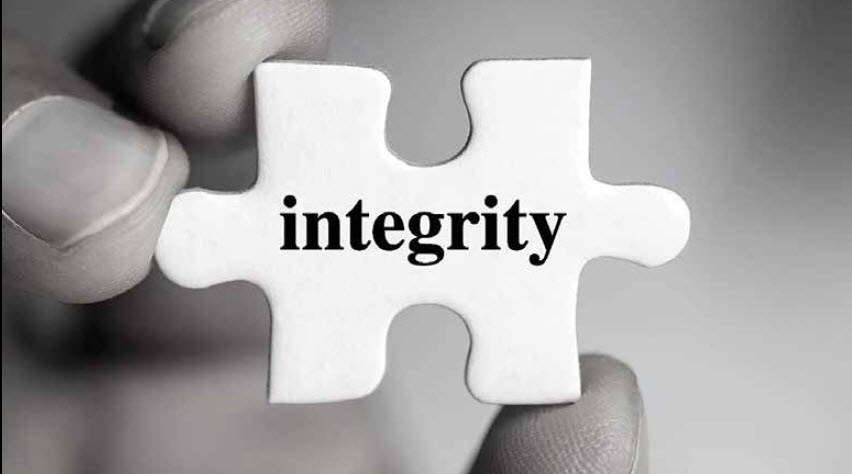 By: Eric Betts
By: Eric Betts
Beyond skill, talent, expertise, intuition, experience, and vision, integrity is the one indispensable quality that is needed to truly fulfill one’s leadership potential. One can have a gift of inspiring and working well with others, but nothing is more demoralizing, disheartening, and deflating than to observe lapses in integrity by leaders. Those who function under the supervision of an unethical leader often lose faith in them and the organization, and begin to second guess requests and assignments. People notice what appear to be small lapses in integrity, and instinctively respond to ensure they are not being misled or cheated. When integrity is lacking, chemistry and togetherness suffers.
An unethical decision may seem to preserve the company from failure in the short-term but the long-term effects can be destructive. Integrity is always on life support if a decision has to be covered up with words such as “don’t tell,” in conversations about fellow team members. It is also difficult to keep people around with a high view of integrity when such lapses occur. According to leadership expert John Maxwell, “Integrity is when what you think, say, and do are all in alignment.” In other words, integrity is cultivated when a leader refuses to say the opposite of what they think, or do the opposite of what they say. Sadly, these are habits and traits that too many leaders have fallen into. Consequently, they fail to maximize their potential and get the best out of their more junior team members and associates. Some junior team members will continue to be loyal and follow a leader who lacks integrity, but the cream of the crop is constantly making mental notes, which creates an environment of suspicion and apathy.
Because so many, due to their own personal growth levels, have many blind spots when it comes to high-level integrity, it must be a constant study. There are so many details on the subject of integrity that are unintentionally overlooked. SIGMA Assessment Systems, which is a consultant company providing talent assessments, succession planning, executive coaching, and leadership consulting services to help organizations hire and develop strong performers, have concluded the following when it comes to integrity:
“Integrity also involves following company policies, appropriately using company time and resources, and respecting one’s colleagues’ assessments…Employees serving under high-integrity leaders demonstrate more positive workplace behaviors (e.g., helping others during busy periods) and fewer negative workplace behaviors (e.g., falsely calling in sick).”
Based upon these studies, leaders with integrity inspire confidence and helpfulness among team members. Part of having a heart of integrity means keeping promises and commitments and being honest about your limitations.
Integrity is not limited to following company rules to the letter, but also abiding by the intent and spirit behind the rules. It is possible to obey the literal reading of the words in the rules and find a loophole which violates the intent behind the rule. The intent behind most rules are universal values that are often unspoken and unwritten, which are fairness, mutual concern for common humanity, and mutual respect.
Finally, integrity means avoiding partiality when it comes to enforcement of rules and holding people accountable. Hold yourself accountable and acknowledge when bad choices have been made. When it comes to correcting, criticizing, or enforcing disciplinary procedures, make sure it is the same treatment whether it is a senior official, salaried person, or a wage earner. Additionally, when executing discipline or reward, integrity means that there will be equal application across cultures, ethnic groups, genders, and people you don’t particularly like.
Integrity builds faith in the mission of the organization and will lead to more positive outcomes than when integrity is lacking. It is also a mistake to assume that one has mastered what integrity looks like, when reality suggests that it is a constant work in progress. Keep learning, growing, and building.
By: Eric Betts
Udemy Instructor in Religion, Leadership and Ethics






